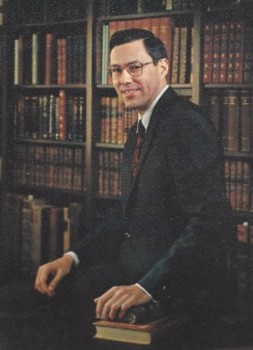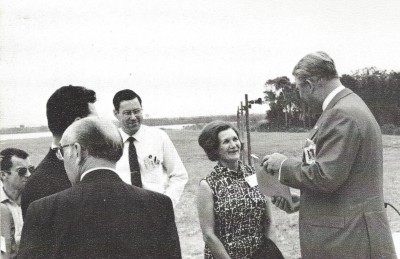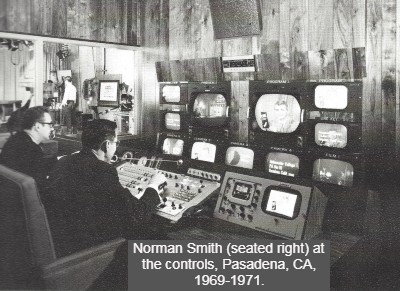Remembering Norman Smith (1930-2021): Systems Specialist Ahead of His Time
 Norman Smith as Vice President of Broadcast Production, 1969.
Norman Smith as Vice President of Broadcast Production, 1969.By Neil Earle
Hearing about the death of Norman Smith this April brings back warm memories of a man who exemplified in many minds the “strong silent type” from a different era.
They say what you are doing at age 40 defines who you are and at two-score Norman Smith from Burnt Prairie, Illinois, was overseeing the mechanics behind one of the fastest-growing religious television programs on earth. He had already helped engineer, perfect and develop the world’s biggest buyer of faith-oriented radio time across the 1950s and 1960s, a religion/current events commentary named “The World Tomorrow.” Emanating out of the headquarters of the then Worldwide Church of God (WCG) in Pasadena, CA, the leading “World Tomorrow” presenter has been called “the most familiar voice on the planet” by Canadian televangelist David Mains.
According to J. Gordon Melton’s Encyclopedia of Religious Broadcasting the 30-minute radio show typically could be heard six nights a week with an audience of nearly 5 million people.
 Norman Smith (white shirt) meets Werner Von Braun at Cape Kennedy.
Norman Smith (white shirt) meets Werner Von Braun at Cape Kennedy.The WCG began as the aptly named “Radio Church of God” from its founding by Herbert Armstrong around 1931. Here was an Iowa-born radio preacher with no formal theological training and usually scored by the religious establishment as unorthodox and even “cultish” and yet the Armstrong penchant for media evangelism persevered. With a tenaciously loyal band of supporters, the small West Coast-based sect had become the biggest thing in radio with 400 stations in 1971. At the controls through all that and faithfully incognito, sat Norman Smith. As a sort of grand climax to the team Norman Smith had built, the television arm of the church – starting from zero in 1967 – was ranked by Arbitron in 1985 as the number one religious program in the United States, “available to 98.8% of the American population” claims church historian Scott Lupow.
Quality First!
A big reason for the almost unparalleled success of those efforts – and a man who fondly embraced the church’s turn to religious orthodoxy in the 1990s as pastor and board member – was the sound engineer, technical specialist and all-round “tekkie” Norman Smith. The World Tomorrow’s reputation in media production was so prized that it meant the radio-TV arms had to keep ahead of the latest technical breakthroughs and this suited Norman Smith’s analytical mind and energetic spirit perfectly (rumor had it in the late 1960s that he possessed the highest IQ in the organization!).

Whether it was recording a launch of a missile test at Cape Canaveral or in-studio interviews with public figures from Margaret Mead to biologist Paul Ehrlich or German politician Franz Josef Strauss, Norman Smith could be counted on to make sure the technical matters ran smoothly in his quiet American “can-do” way. As long as religious broadcasting endures, his works will speak for him, especially for those who know the fuller story of these pioneering exploits in media evangelism.
I only had one conversation with him and his deeply intelligent wife a few years ago and enjoyed it immensely. They helped me fill in some important background to the church of the 1950s. His intelligence, human sympathy and willingness to answer difficult questions humbly matched exactly my impression of him from many years previous. Norman Smith: He did not make a “lot of noise” as we say today but in the expansive years of the WCG his name was surely legend.